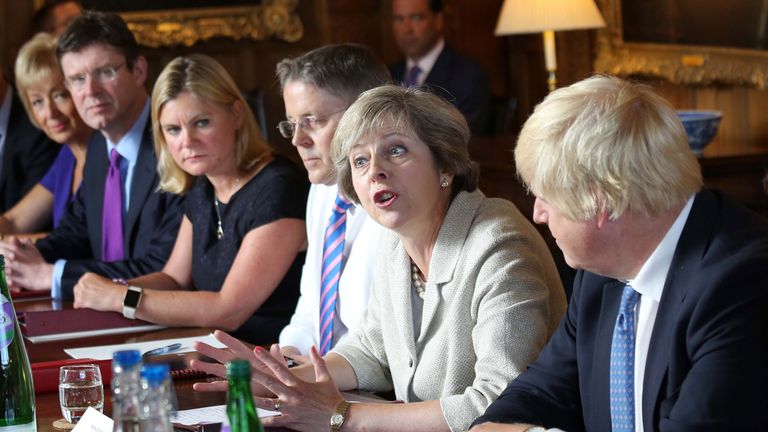Inequality in the UK is not getting worse, but it is changing
Inequality has not changed that much over the past decade overall - but the areas with the greatest disparities have.
Thursday 1 February 2018 16:57, UK
The good news is that inequality in Britain isn't getting worse. The bad news it that it isn't getting better, either. It's just getting different.
That's the main theme to come out of the latest batch of wealth analysis by the Office for National Statistics (ONS).
It's a very comprehensive 69-page appraisal of how the nation's wealth is distributed within British society, and how the picture is changing. And in some places, the answer is that it is not changing all that much.
A striking fact of this year's report is that the top 10% of the nation has as much wealth as the bottom half put together.
That's exactly the same proportion as the last time this analysis was compiled two years ago.
But what about inequality? Well, handily enough, there is a way of measuring that, which is presented in this report. It's called the Gini coefficient (named after the Italian statistician Corrado Gini, by the way) and it examines the distribution of wealth.
A score of zero means we all have exactly the same income; a score of one means one person having all the money, and the rest of us having nothing.
This time around, Britain scored 0.62 overall. To put that in context, it was 0.61 a decade ago, when the ONS first did this report, but 0.63 last time round. In broad terms, inequality has not changed over the past decade.
You might ask why things have not changed. The answer, as so often with economics, is that a lot of things have actually changed, but when you lump all those things together you end up with a net result that looks a lot like what came before.
So on the minus side, we are becoming ever more divided by the value of property. Look at the two charts alongside this, and they tell a story.
While homes in northeast England went down in value between July 2012 and June 2016, those in London went up by more than 30%.
Nowhere else in the country comes anywhere near to touching that level of increase, which has led to Londoners becoming richer than any other place in Britain.
The average household net property wealth in London is about £350,000. In the South East, it is about £100,000 less than that. In the North East, property wealth is slightly less than a third of the average in London.
So we have a huge regional disparity, fuelled by the spiralling cost of London property in the aftermath of the credit crunch, and that fuels inequality between the capital, the South East, and then the rest of the country.
It also stokes anger among young house buyers about the near impossibility of buying a property anywhere near the capital.
But on the flip side, there is an area where inequality is falling. Auto-enrolment of pensions began in 2012, and has led to a huge spike in the number of people who are signed up to pension schemes.
That is important because the two biggest factors in measuring our wealth are the amount of money we have tied up in a property, and the amount we have put away in a pension scheme.
So, as property wealth has become more unequally distributed, pensions have spread further across society. More people saving more money. Inequality narrowed. One balances out the other, and the inequality stays the same.
The tough question is whether Britain has done well to resist worsening inequality, or has failed in its quest to make society fairer. The answer, curiously, may well be yes. To both.








